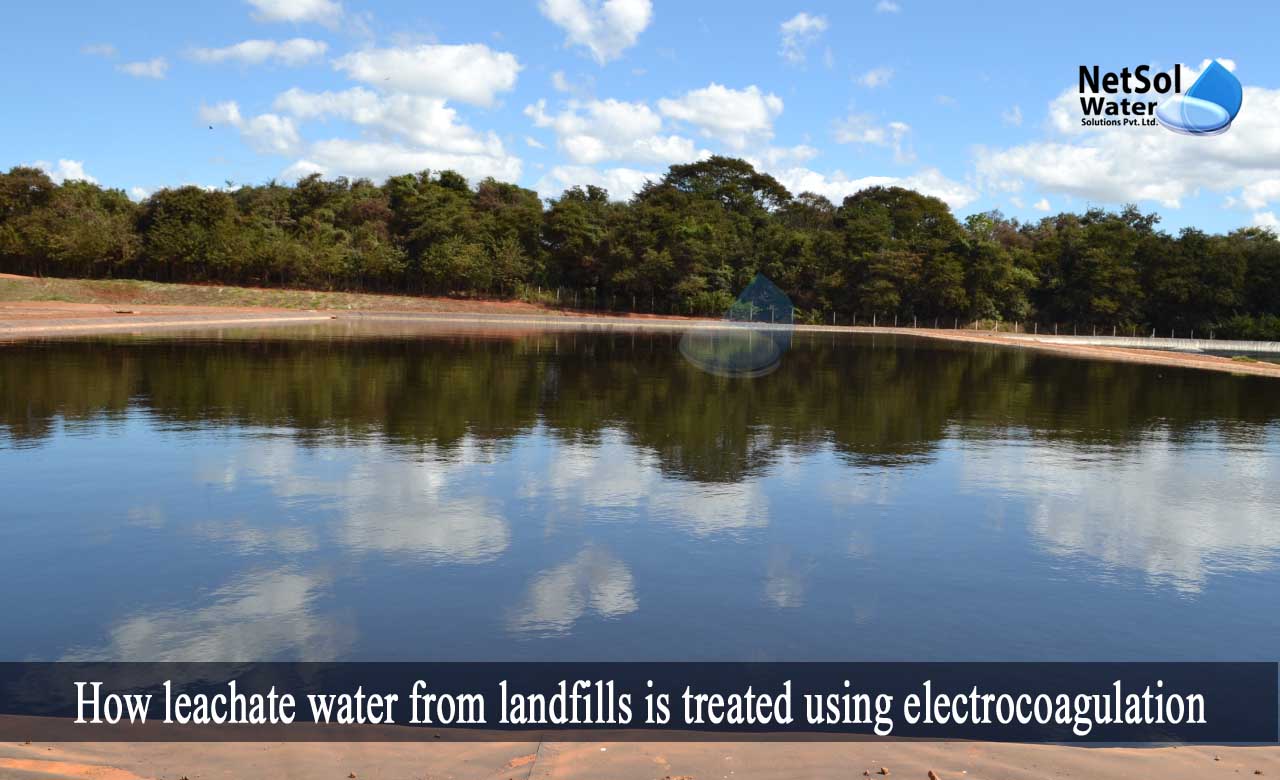How leachate water from landfills is treated using electrocoagulation?
Due to the world's increasing population and flourishing economies, solid waste creation is rising. Municipal solid waste (MSW) management techniques, most frequently utilize sanitary landfilling. Although landfilling is used as a practical and affordable solution in nations where there is a room, there are significant environmental dangers because of the production of landfill leachate (LL).
Water bodies suffer if leachate leaks into the environment. As a result, their treatment is important. Therefore, in this blog we will enlist the electrocoagulation technique for treating landfill leachate.
What is a landfill leachate?
The MSW leachate is a black liquid with inorganic ions like ammonia (NH4), as well as soluble organic molecules, such as volatile fatty acids and resistant chemicals, heavy metals, xenobiotic organic chemicals, such as aromatic hydrocarbons, phenol, chlorinated aliphatic, and pesticides, and potassium (K+), sodium (Na+), and chloride (Cl), ions.
Factors influencing leachate concentration
The composition of leachate is highly changeable and is influenced by the MSW content, the age of the dump, and the local meteorological conditions. The quantity of LL formed is influenced by a number of variables, including precipitation, evapotranspiration, infiltration, and the degree of landfill compaction.
Landfill Solid Waste Pollution & Leachate: Current Concerns
Consistent population growth and changing lifestyles have resulted in massive pollution from solid waste, which depletes resources and has a detrimental effect on the ecosystem.
Even though recycling and reuse have been used extensively to combat the issue of solid waste contamination, landfilling is still one of the main techniques for getting rid of solid waste. Leachate production from this process is one of the method's major flaws, and it now poses a huge environmental hazard.
Leachate Treatment Techniques
It is well known that among wastewater treatment options, biological treatment can be among the least expensive. However, the efficacy of this approach is hampered by the presence of contaminants in landfill leachate, such as non-biodegradable organic pollutants.
Traditional methods of landfill leachate treatment
For the treatment of landfill leachate, a number of methods have been used, including adsorption, electro-oxidation, biological, and advanced oxidation. When utilized for the primary treatment of this kind of wastewater, some of these approaches have some downsides. For instance, the electrochemical oxidation process is selective and can be harmed by the electrode passivation process, while the adsorption approach is highly sluggish.Furthermore, because oxidant reagents must be stored in specialized storage tanks, the advanced oxidation process can be expensive.
The traditional chemical coagulation method also has a number of drawbacks. For this procedure, chemicals like alum and other metal salts are utilized. The high levels of solid sludge creation and environmental impact of this method's operation costs, are two of its key drawbacks.
Specific Electrocoagulation technique for the treatment of landfill leachate
Due to its automation and very simple operation, electrocoagulation treatment has attracted a lot of attention recently.This technique has simple equipment, short retention durations, less sludge generation, and doesn't require any chemical addition.Additionally, since leachate solutions often have a higher level of salt, less electrical energy is used during this treatment process.
In the typical advanced leachate treatment process, the leachate solution is discharged with the least amount of environmental impact possible, after a primary treatment that includes specialized electrochemical treatment, and any necessary post polishing filtration and disinfection.
Conclusion
Leachate from landfills is regarded as a difficult effluent that should primarily be treated, using cutting-edge methods. As a result, the removal of COD, NH4+, TSS, TDS, turbidity, and colour from the municipal solid waste landfill leachate, involves combining traditional coagulation methods with the electrocoagulation process.
Netsol Water is Greater Noida-based leading water & wastewater treatment plant manufacturer. We are industry's most demanding company based on client review and work quality. We are known as best commercial RO plant manufacturers, industrial RO plant manufacturer, sewage treatment plant manufacturer, Water Softener Plant Manufacturers and effluent treatment plant manufacturers. Apart from this 24x7 customer support is our USP. Call on +91-9650608473, or write us at enquiry@netsolwater.com for any support, inquiry or product-purchase related query.



